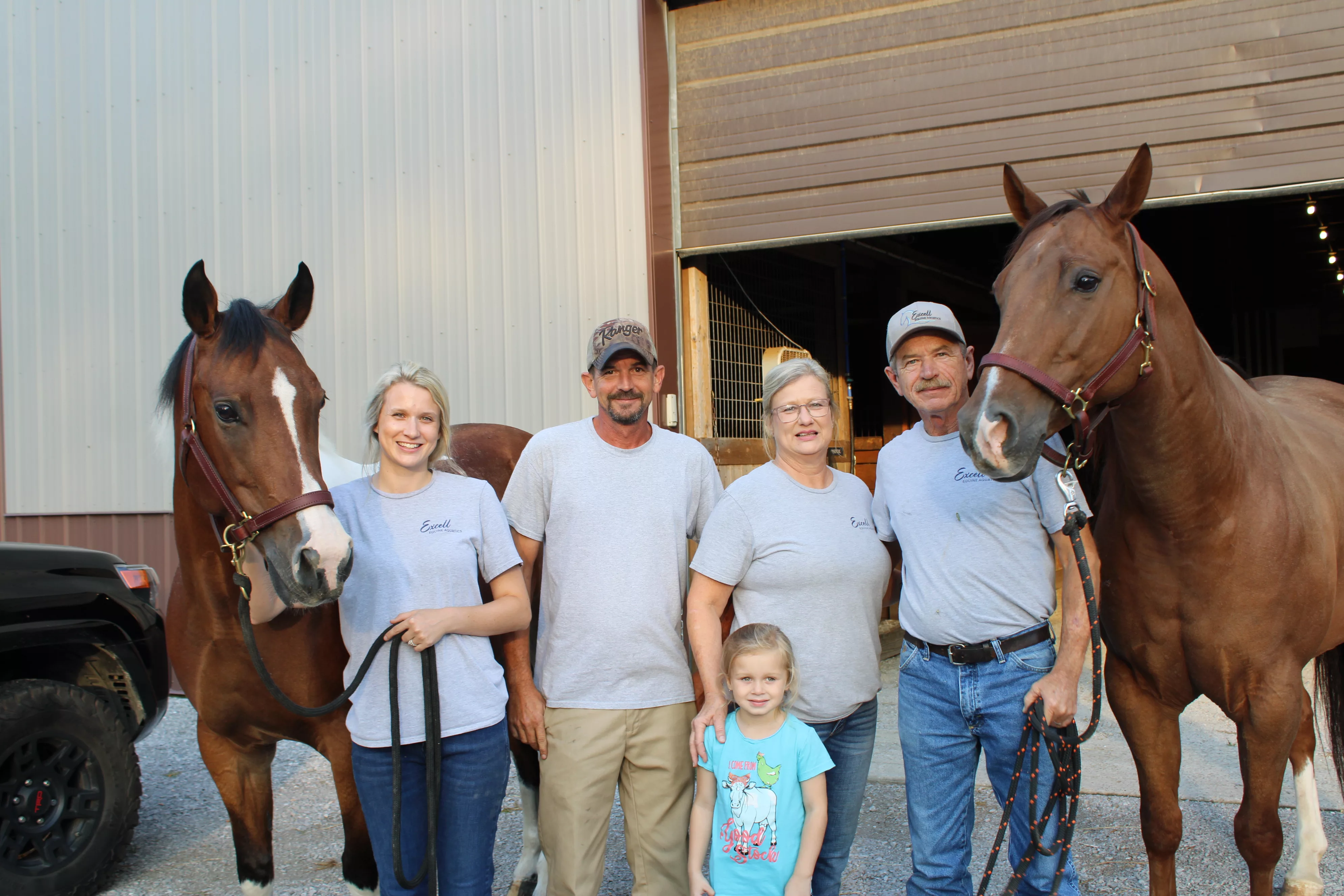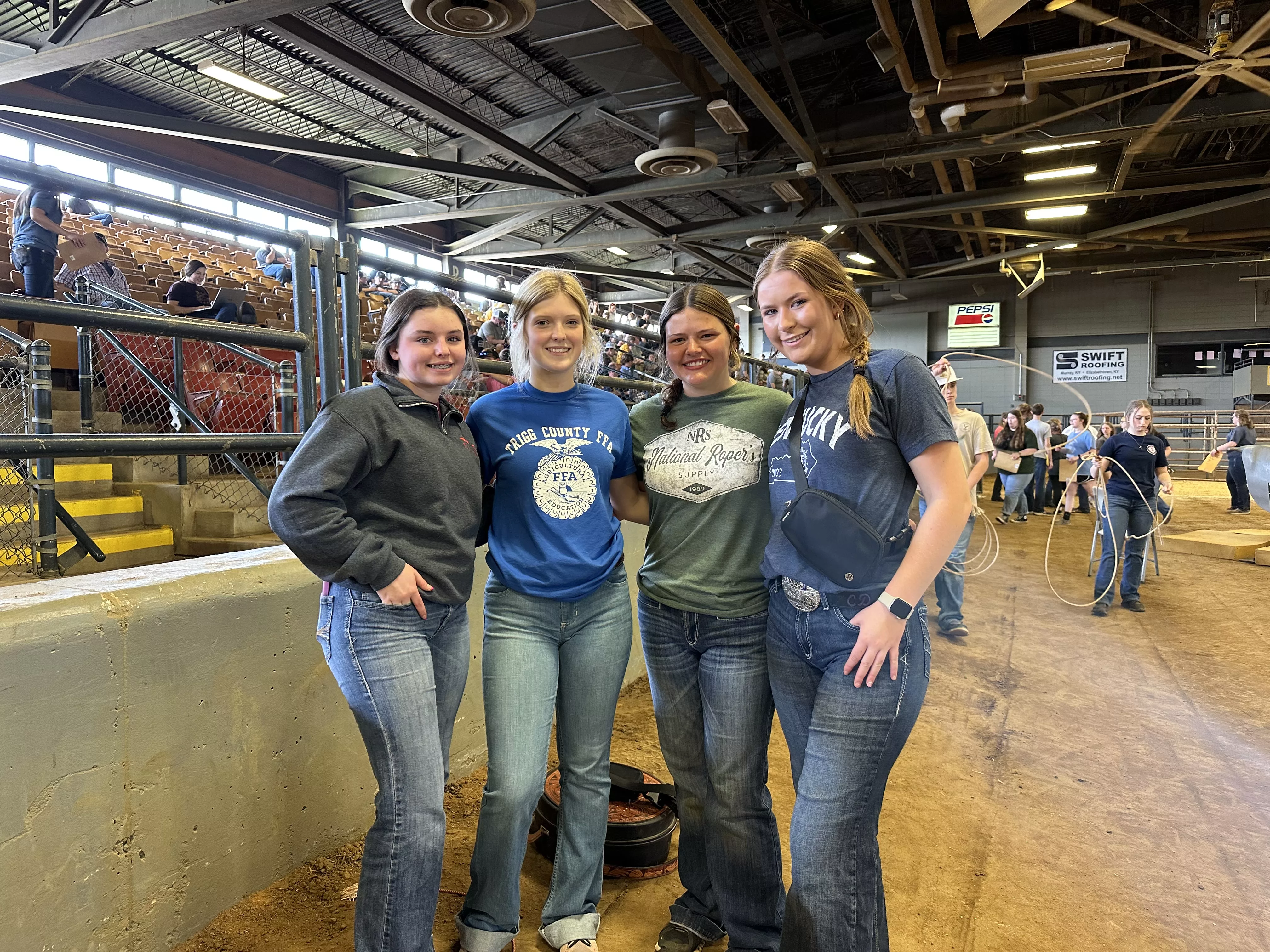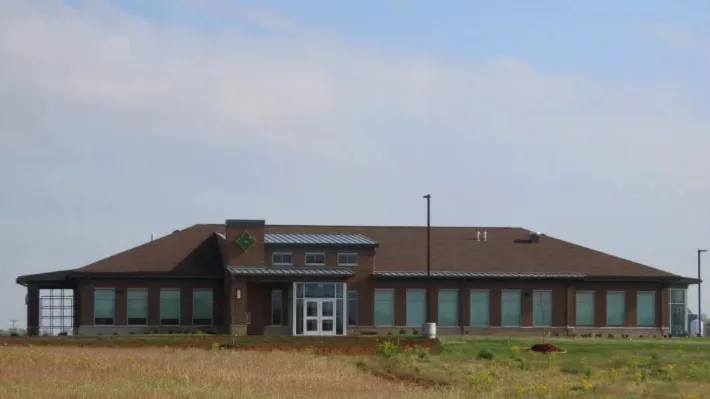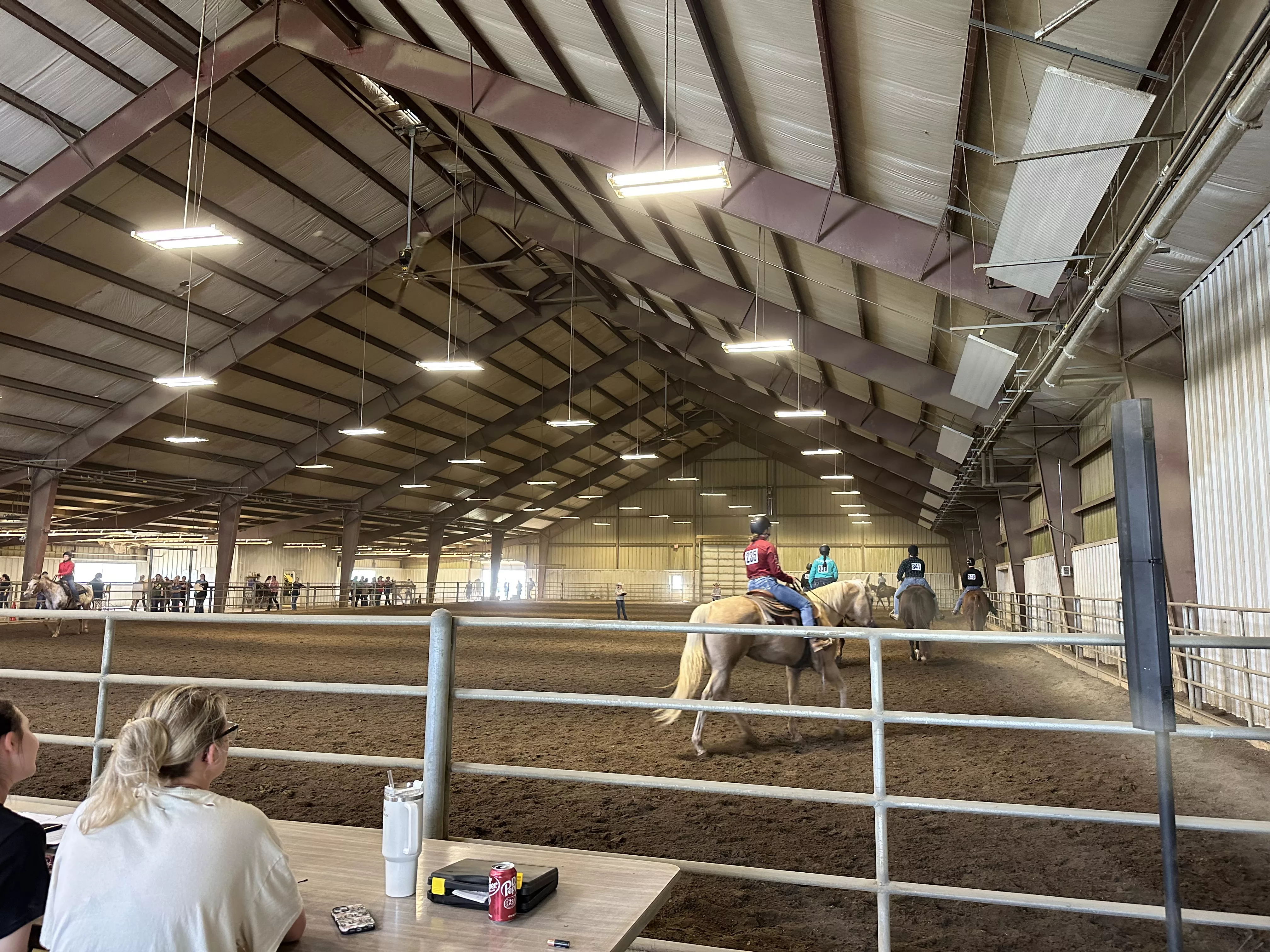Late July through August we often receive calls about large wasps swarming over lawns. These are often very large cicada killer wasps. While a nest is made by a single female cicada killer wasp, they form aggregations with up to several dozen individual nests in a lawn or other locations. With the reports of the Asian giant hornet (‘Murder Hornet’) in the state of Washington earlier this year, many people have mistaken cicada killer wasps for this invasive pest, which we do not have in Kentucky.
The females are not aggressive and do not defend their nests like social wasps and bees. Females will pay little attention to persons walking through their nesting areas. However, male cicada killer wasps will approach anything that enters the area of these nests. Fortunately, males lack stingers and, despite their aggression, they are harmless. As a group, cicada killer wasps are generally not considered dangerous.
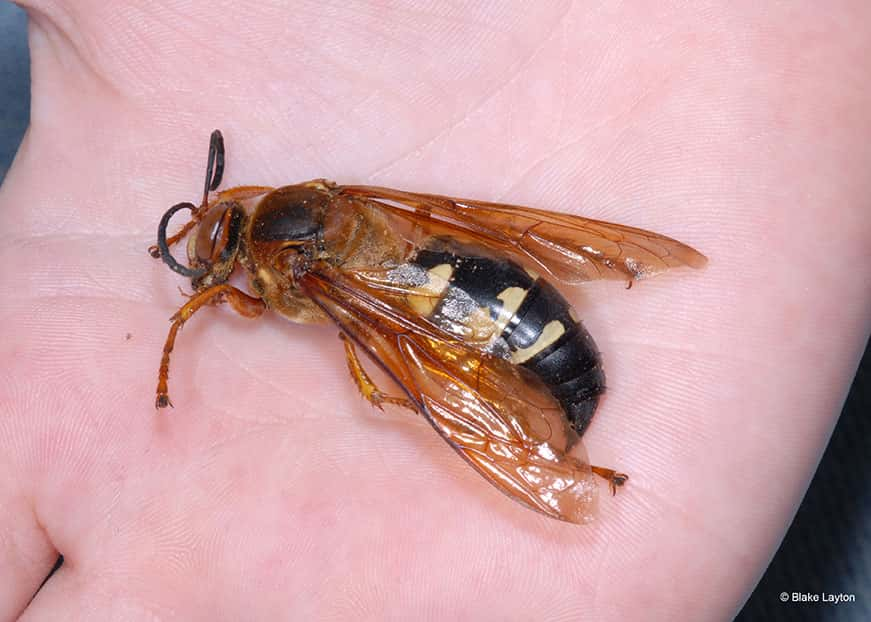
Cicada killer wasp nests can be common in lawns, along driveways and sidewalks, and in flowerbeds where the soil is dry and well drained. Tunneling is quite extensive, which means they bring large amounts of soil to the surface; this can be very unsightly.
When control is needed, direct a pyrethroid insecticide application to the tunnel or entrance to the tunnel as this has been shown to reduce their activity. Broadcast insecticide applications over large areas have not provided consistent results.
— Kelly Jackson, Christian County Extension Agent




